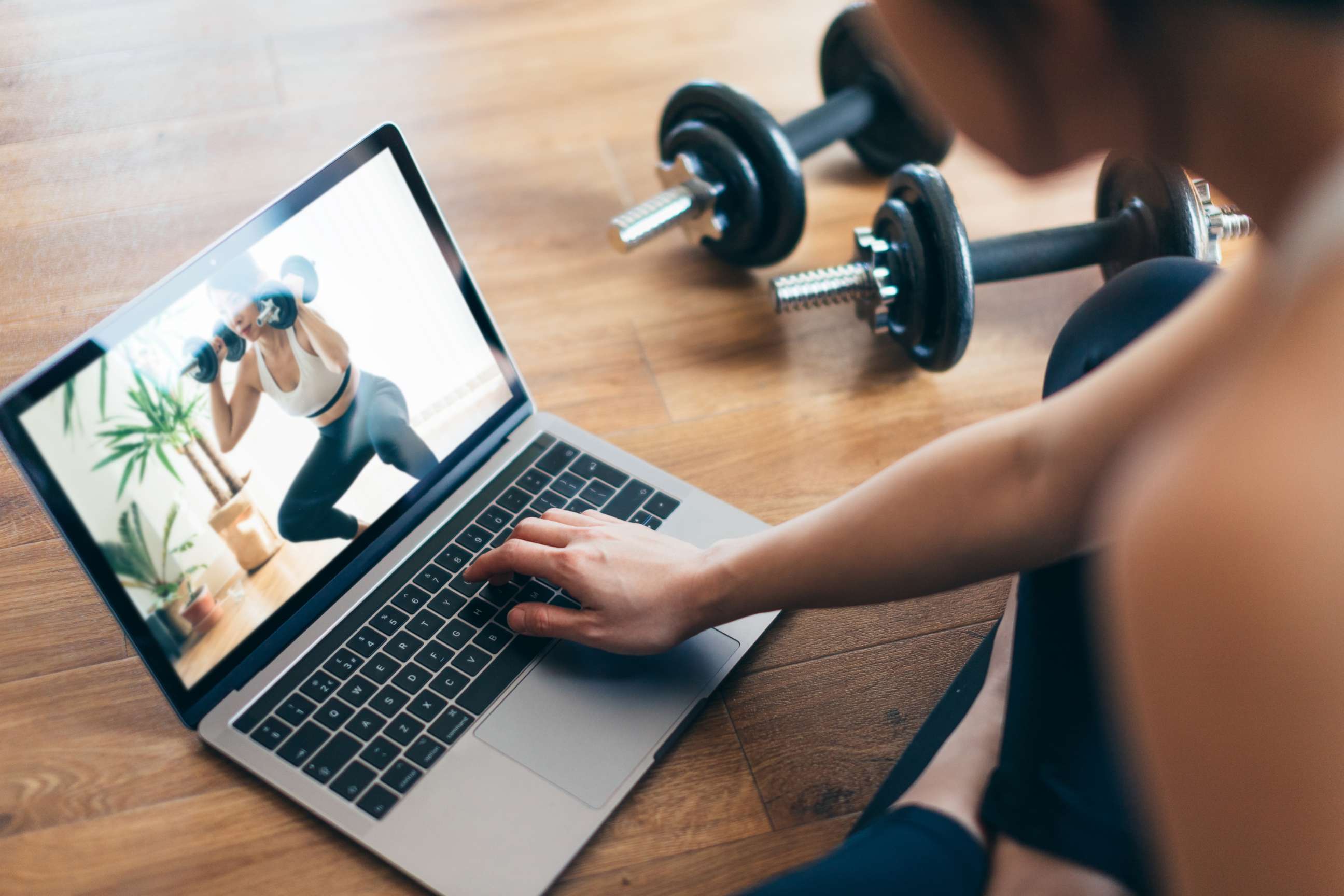What does the future hold for virtual fitness? A hybrid model, possibly
Stock prices for companies like Peloton and Zoom have soared in recent months.
It was a busy week on the stock market for companies like Zoom and Peloton, the virtual fitness platform that allows users to exercise anywhere using its app, bike and treadmill. These companies along with other products that people have been using in their homes during the pandemic have seen stock prices soar in recent months.
On Monday, Zoom and Peloton took a hit after news of the effectiveness of a vaccine from the drug maker Pfizer, with investors hoping more people would start doing things outside their homes sooner than originally anticipated. Throughout the week, Zoom and Peloton’s prices crept up steadily after the complexities and challenges of getting a vaccine to the general public were revealed.
This week, as part of ABC's "Perspective" podcast, ABC's Daria Albinger spoke with Dave Packles, the irector of Product at Peloton, and Austin Cohen, the CEO of the app FlexIt, on what working out from home will look like once people resume normal activities.

"People have been treating fitness as a meeting," Cohen said. "They have a thirty minute meeting. They go workout virtually for thirty minutes. They go back to their desk. Right? And then one hour past that first meeting that they had, and they're back to work... It's easy. It's beautiful. You don't waste time commuting to the gym."
Packles said people have adjusted after months of training in their houses.
"In reality, people are being introduced to this [home workouts] for the first time. The norm was: 'To get a workout in, I must go to a gym. I must go to a boutique class.' Working out from home wasn't as widespread. I think the pandemic is forcing people to kind of re-examine that. So you kind of have more people who are now trying it."
Packles also said Peloton tries to tailor its workouts to different types of exercises, not just indoor bike riding, because people generally prefer to diversify their training and work out more than just by themselves.
"Working out in the physical presence of another person is always going to be the best,” Packles told ABC's "Perspective" podcast. “Going for an outdoor ride with a friend, potentially going to a boutique class or going to the Peloton studio and feeling the energy of the people around you in the room? That's always going to be such an amazing experience.”
“I think Peloton aims to try to capture the best things of that and bring that to them," Packles added.
Cohen said the trend has even driven demand for a new job, the virtual trainer. However, he does not believe it will make gyms a thing of the past.
"Even if you're not standing next to someone physically, they can still effectively be in your presence, motivate you, and hold you accountable. It's a trend that we're going to continue to see and it's going to come to the forefront over the next few years... Gyms are not going away. A lot of people have suggested that they may, but they're not. At the end of the day, you cannot lift weights, for example, at home the way you can at the gym. And people are social beings. They still want to be out there, be around people. It's motivating to be in a gym. With that said, virtual fitness has gone crazy over the last few months and that's not going to go anywhere. What the future will hold is a hybrid model. So if you were someone who used to go to the gym seven days a week... you may go to the gym three, four, five times a week, and supplement your gym access with virtual fitness."
Packles agreed.
"We crave that human connection and I think we all miss that,” said Packles. “So, I really do hope that it's a mix going back [to the gym], but hopefully more and more people are experiencing Peloton together in the future as well."
Listen to the full report and the rest of this past week’s highlights from Perspective.




